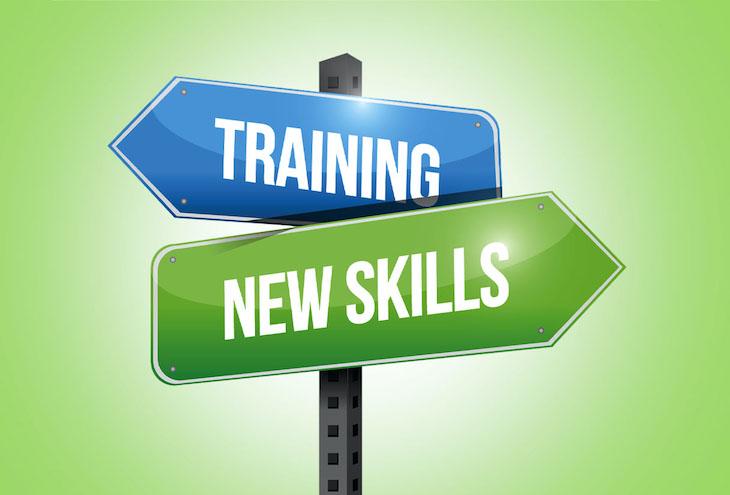Professional development covers a wide variety of learning opportunities, from seminars to academic degrees— and is not one size fits all. What makes professional development so compelling, is that there is something for everyone and every role. It doesn’t have to be done at once, and it allows employees and employers to keep abreast of current trends. Whether you are the manager or the staffer, here are a few reasons professional development is so important.
Keeps Your Skills Current
Regardless of what field you are in, there are always new innovations, systems, and skills being rolled out. As an employee, professional development allows you to keep your skills current. The way you approached your work even five years ago may be vastly different than how it is done today. Keeping your skills current will ensure that you are able to perform your job at the highest level and make you an asset to your organization — one they won’t want to lose. But if you do decide it’s time to move on, your updated set of skills could be just the what a potential employer is looking for.
Keeps Employees Engaged
As an employer, there is only so much you can do to keep your employees engaged and motivated, and for many employees, money alone does not do it. In today’s world, employees want opportunities to grow and learn, and ultimately move upward in the organization. Providing professional development opportunities shows employees that they are valued and that the organization wants to invest in them. Quality professional development programs can serve as strong retention tools.
Builds Your Confidence
Professional development not only helps you keep your skills current, it also helps you build your confidence. The more training and experience you have, the more confident you will be in your ability to do your work well. Although no one expects you to be perfect, being confident in your work will help you successfully convey ideas and information to others. This, in turn, will build your credibility and your relationships across the organization.
Helps Succession Planning
Often when an employee leaves, employers realize that they don’t have any internal candidates who can fill the role. By providing opportunities for professional development, employers give other employees the chance to learn the skills that will help them advance. Mentorship opportunities, additional trainings and certifications, and new courses can provide employees with the skills and experience needed to work toward that next level. This creates business continuity that is lost when employers have to go to an outside search.
Keeps Learning at the Forefront
Everyone should be a continuous learner. When we don’t continue to learn, we can’t continue to grow. That is bad for both employees and employers. Without change and growth, employees can’t advance and will become disengaged. Likewise, employers won’t be able to move their businesses forward and could lose their competitive edge. Professional development is critical because it ensures that learning doesn’t fall by the wayside, but rather puts it front and center. It allows employees to know they are valued and employers to know their staff wants to do the best they can for the organization.
Whether you are an employee or an employer, professional development is key in ensuring your success. It can be as small as listening to a seminar, or as large as getting another degree. Regardless of the activity, professional development helps to motivate employees and make them feel valued. It also helps employers retain talented individuals.
 On Topic
On Topic
How can employees show their commitment to professional development?
Veronica Lane, an enrolled member of the Navajo Nation, is a vice president and business development officer at Native American Bank, N.A. She has been with the bank for more than seven years, starting as a commercial credit analyst before moving to the commercial lending team. Prior to joining the bank, Lane worked with various companies in the finance industry.
It’s important to prioritize professional development throughout your career because those opportunities will help you achieve the professional goals you set for yourself. It’s imperative to continuously expand your knowledge and grow as a professional within your industry. In any profession, there is a constant flow of new regulations, laws, and programs that affect your industry every day. For example, the amount of new information that has been disseminated each day during the COVID-19 pandemic is something I have never experienced before. And this new information will have lasting impacts for the next few years.
I have found that when you are proactive about signing up for webinars and trainings, it clearly demonstrates that you are willing to take initiative — something employers appreciate. You also can subscribe to newsletters and email lists with organizations within your industry. For the most part these are free of charge and they are great resources to help you keep up to date with current events.
Another area that employees can show their commitment to professional development is by participating in networking events. The power of growing your professional network is probably the most valuable tool to build throughout your career. The relationships that are built, whether in your specific professional industry or in your community, often will prove to be beneficial. As a self-proclaimed introvert at heart, believe me when I tell you the more comfortable you become connecting with others and building relationships, the more you will be presented with opportunities that you may not have had access to previously. It’s in these settings that you can pose questions to those who are more advanced in their career or have a similar career path that you are embarking on. In most cases, they are willing and able to share advice on what resources they have utilized in their professional development.
Sometimes I feel that we tend to become complacent in our careers — especially when we finally land our “dream job.” But I urge you to remember that there is more knowledge to obtain so you can continually develop as a professional.














